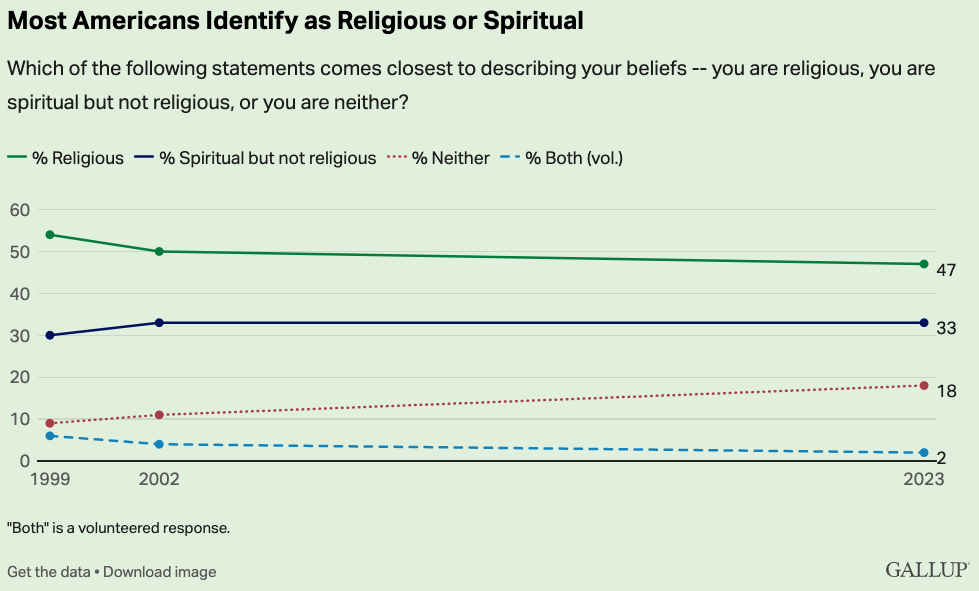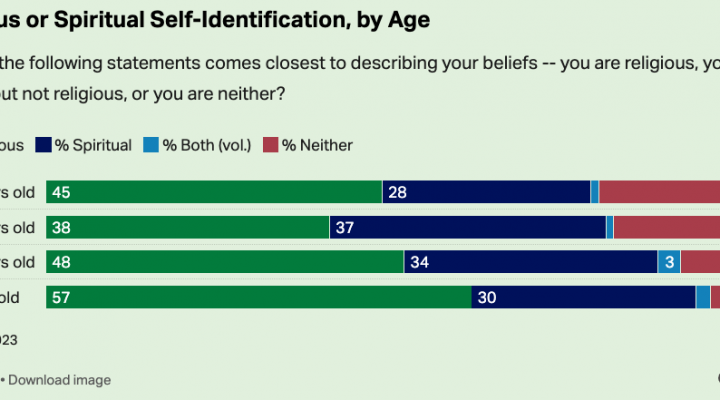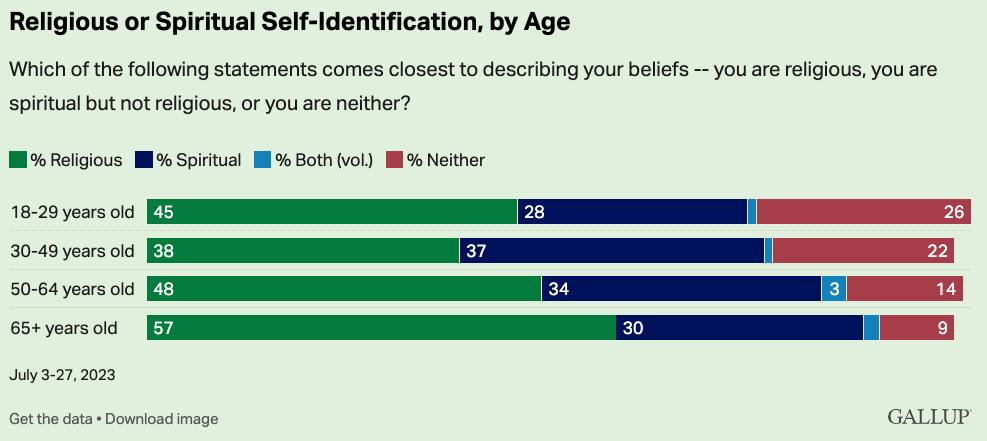Only 2% of Americans describe themselves as both “religious” and “spiritual,” while most others claim to be one or the other, according to a new study that examines how U.S. adults envision their faith identities.
“Nearly half of Americans (47%) describe themselves as religious, another 33% say they are spiritual but not religious,” Gallup said in the survey released Sept. 22.
However, while most Americans use one of those designations to describe their attitude toward the supernatural, the 18% who claimed neither term is double the share measured when Gallup began posing the question in 1999.
“Over the same period, the percentage identifying as religious has declined by seven percentage points. … All told, 82% of Americans have some type of spiritual belief system. This proportion is down from 90% in 1999 and 87% in 2002.”
Gallup said the trends uncovered in the July survey are consistent with previous studies documenting declines in religious self-identification and practices — including belief in God, daily prayer, church attendance and membership. A poll from 2021, for example, found 69% of Americans identified as Christians that year, down from 90% in 1971. The 2021 study also reported 27% of respondents described religion as “very important” to them, compared to 70% who said the same in 1965.
Pew Research Center has tracked similar trends in its surveys and reported nearly 30% of Americans identify as “nones” — agnostics, atheists or “nothing in particular” when it comes to faith.
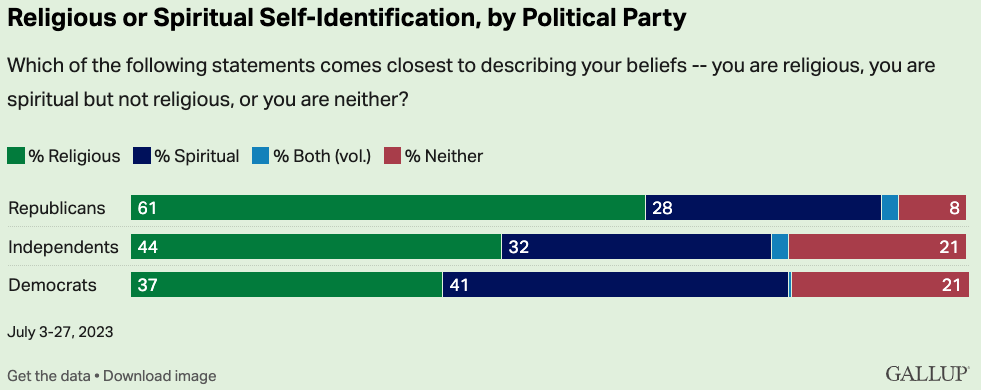
But in its most recent study, Gallup said it found the largest gap between religious and spiritual self-identification to reside along partisan and generational lines.
Republicans, at 61%, were the most likely to say they are “religious” while 28% identified as “spiritual.” Among independents, 44% said they are religious and 32% said they are spiritual.
The greatest movement has been among Democrats who identify as religious — from 60% in 1999 to 37% this year. However, the share of Democrats who said they are “spiritual” rose from 27% to 41% in that period.
As for those who are neither spiritual nor religious, the partisan gap is wide: 21% of both Democrats and independents said they are neither religious nor spiritual, compared with only 8% of Republicans.
Gallup’s report summarized: “It is well-established that Americans are less religious than in the past. Still, the vast majority of Americans describe themselves as being either religious or spiritual. Some people who were formerly religious may have found nonreligious forms of spirituality to address their nonphysical needs, while others may have turned away from any type of spiritual or religious practice entirely.”
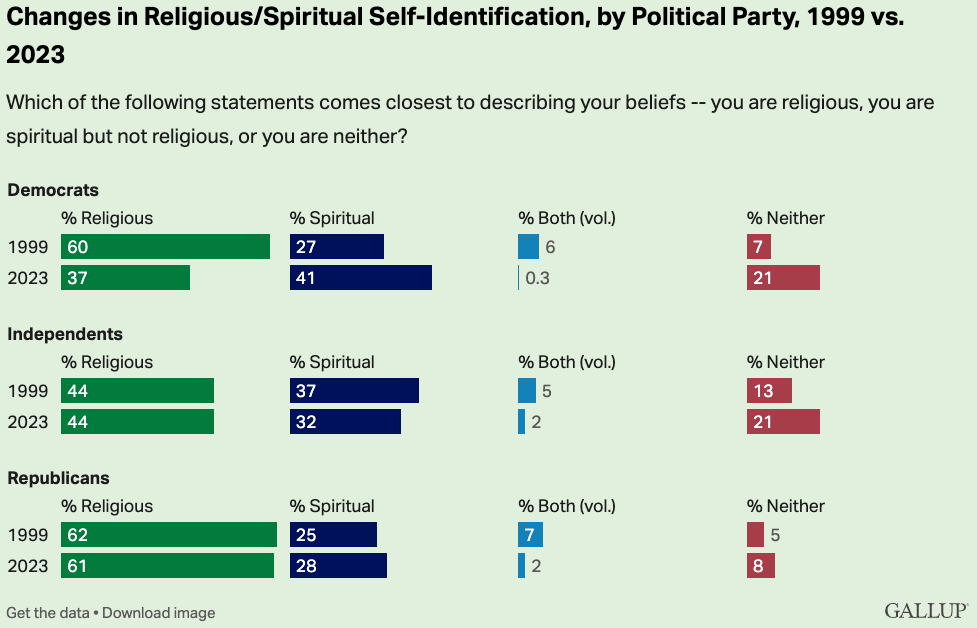
Among other findings:
- “There has been no meaningful change in Republicans’ self-identification as religious or spiritual and only modest changes among independents. Over the past two decades, independents have become slightly less likely to identify as spiritual and slightly more likely to say they are neither religious nor spiritual.”
- Americans ages 65 and older are much more likely to say they are religious (57%), compared to those 18-29 years old (45%).
- Those who identify as “spiritual” but not “religious” exist in similar proportions across age groups: 18-29 years old (28%), 30-49 years old (37%), 50-64 years old (34%) and 65 and older (30%).
- “Young adults are much more inclined than other age groups to say they are neither religious nor spiritual. The 26% of young adults without a belief system is nearly three times as many as the oldest Americans (9%) without one.”
- “All age groups also show increases in the percentages saying they are neither religious nor spiritual. Larger proportions of Americans in older age groups identify as spiritual today than did so in 1999, while there has been little change in spiritual identification among those younger than 50.”
